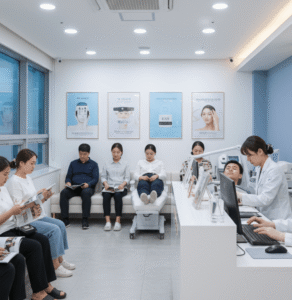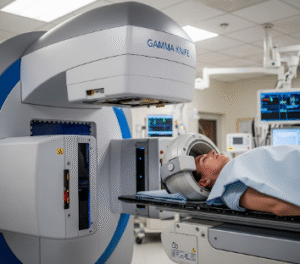Overview
Glandular fever, also known as infectious mononucleosis, is primarily caused by the Epstein-Barr virus (EBV). In South Korea, EBV infection is common among children and adolescents, though the incidence of symptomatic cases has decreased over time. While the disease is typically self-limiting, proper management is important to prevent complications.
Epidemiology in Korea
EBV infection occurs early in life, with most children becoming infected by age 10–15. Symptomatic glandular fever is more common in adolescents and young adults, while younger children often have milder or asymptomatic infections.
Symptoms
Symptoms of glandular fever can include:
- Fever
- Sore throat
- Swollen lymph nodes
- Enlargement of the liver and spleen
- Fatigue
In children, fever is often the first symptom, while sore throat, muscle aches, and lymph node swelling can vary by age group.
Causes
Glandular fever is caused by infection with the Epstein-Barr virus, which spreads through:
- Saliva (kissing or sharing utensils)
- Close personal contact with infected individuals
- Blood transfusions or organ transplants (rare)
Risk Factors
- Adolescents and young adults
- Close contact with someone already infected
- Weakened immune system
Complications
Most cases are mild, but rare complications may include:
- Enlargement or rupture of the spleen
- Liver inflammation
- Hemolytic anemia
- Neurological issues in severe cases
Prevention
- Avoid sharing utensils, drinks, or personal items with infected individuals
- Maintain good hygiene practices
- Support immune health through proper nutrition and rest
Treatment Options in Korea
Treatment is primarily supportive:
- Rest: Adequate rest to support recovery
- Hydration: Ensuring sufficient fluid intake
- Pain and Fever Relief: Use of acetaminophen or ibuprofen
- Severe Cases: Corticosteroids may be used if there is airway obstruction or severe complications
No specific antiviral therapy is available, and antibiotics are only used if a secondary bacterial infection occurs.












